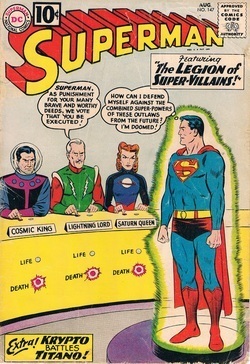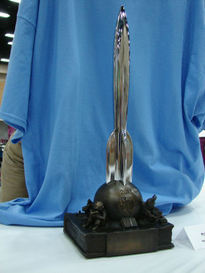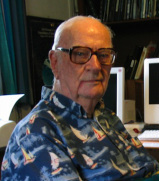Raymond K Rugg's Blog, page 7
December 30, 2013
Calling All Designers of the Sci-Fi Persuasion! @loncon3 @thehugoawards @sfsignal @KevinStandlee
 Photo courtesy Kevin Standlee. Hey you. Yeah, you! Do you have a flair for super-cool sculpture? Then check this out; the World Science Fiction Society has put out a call for submissions for designing the Hugo Awards base for LonCon 3.
Photo courtesy Kevin Standlee. Hey you. Yeah, you! Do you have a flair for super-cool sculpture? Then check this out; the World Science Fiction Society has put out a call for submissions for designing the Hugo Awards base for LonCon 3.The competition is open to anyone, and the submission deadline is January 17, 2014.
Last year for the LoneStarCon 3, Texas-based artist Vincent Villafranca was chosen to design the trophy base. Villafranca was known for his futuristic and fantastic bronzes using a traditional lost-wax casting process. SF Signal has a great video about Villafranca and his submission at http://www.sfsignal.com/archives/2013/09/vincent-villafrancas-2013-hugo-award-base-design/.
And if you have some talent in this area, but are on the fence about submitting a proposal, LonCon 3 also notes that , "The winner of the 2014 Hugo Award base design competition will receive a full attending membership for the convention, where they will be invited to take part in the public unveiling of their design." So if that isn't incentive enough, then I don't know what is!
You can read the official announcement on the LonCon 3 site at http://www.loncon3.org/hugo_base.php, which includes links to base design specifications and on how to enter the competition.
And just because I always like to tie the blog posts back to The Handbook, I'll make note that the Hugo Award is mentioned in ten of the 42 lessons presented in Rugg's Handbook of Sales and Science Fiction.
Published on December 30, 2013 21:24
December 29, 2013
Blogosphere Abuzz with Sandman News @hitRECordjoe @neilhimself #prelude
 I took a couple of days away from the wired world in order to visit the ol' Rugg Ranch up in Montana, but just before I left, the blogs were abuzz with news about Joseph Gordon-Levitt working with David Goyer, Warner Brothers and Neil Gaiman to bring Gaiman's Sandman to the silver screen.
I took a couple of days away from the wired world in order to visit the ol' Rugg Ranch up in Montana, but just before I left, the blogs were abuzz with news about Joseph Gordon-Levitt working with David Goyer, Warner Brothers and Neil Gaiman to bring Gaiman's Sandman to the silver screen.Early reports indicated that Gordon-Levitt would be both producing and acting in the the movie, but a subsequent tweet from him noted, "Just to clarify, folks. I've signed on as a producer on Sandman. The rest remains to be seen. Delighted you guys are excited. I am too!"
Now that I'm back home with my nose to the virtual grindstone, I haven't seen any reports to the contrary, so I'm hoping that the news is the real deal.
I've mentioned before in the Sales and Science Fiction blog that although Neil Gaiman doesn't make an appearance in The Handbook, I do enjoy his work.
Joseph Gordon-Levitt, however, DOES show up in The Handbook. Lesson 17 is drawn from the movie Inception, which stars Gordon-Levitt, and in the Sci-Fi Skinny section of the lesson, I make note of Gordon-Levitt as a contemporary actor making an impact in the field of science-fiction film.
So, it's good to hear the news of his involvement with Sandman. And it makes me feel warm and fuzzy about pegging him as a mover and shaker in the genre. (Okay, I'll admit, it probably didn't take much of a leap to see that he is a go-to guy in the field, and getting more go-to-er by the day. Gordon-Levitt has to his credit a long list of spec-fic acting gigs, including Inception, The Dark Knight Rises, and Looper, of which he was also executive producer.)
Here's what a couple of my favorite blogs have to say about it:
http://www.tor.com/blogs/2013/12/joseph-gordon-levitt-sandman-movie
http://www.themarysue.com/goyer-gaiman-gordon-levitt-sandman/
Published on December 29, 2013 20:13
December 21, 2013
Gravity: It's Science and it's Fiction... #gravity #gravity movie
 Gravity, the movie, that is. So it's science, because it has science stuff in it, like space and satellites and such. And it's fiction, because, well, because it's a story of things that didn't really happen. So it's science and it's fiction, but it's not Science Fiction.
Gravity, the movie, that is. So it's science, because it has science stuff in it, like space and satellites and such. And it's fiction, because, well, because it's a story of things that didn't really happen. So it's science and it's fiction, but it's not Science Fiction.In The Handbook, I talk about my own personal rule-of-thumb for Science Fiction.
I consider Science Fiction to be fiction that has some sort of fantastic element that can be explained as falling under the laws of nature, natural laws that may or may not be understood by us at this point in our technological progress. This would, then, include such stories as space travel and contact with aliens, stories of robots and androids, time-travel by way of scientific technology, and so on.The movie Gravity is about space travel, in the Earth's orbit, but it has no fantastic element. It is adventure and drama that could happen today, given our current technological progress. There is nothing unknown or outside of our current understanding of the natural world in this movie.
That being said, did the fact that the movie is not actually "Science Fiction" detract from my enjoyment of it?
Not one whit! It's still on the big screen at a second-run theater here in Reno, and my younger daughter (who had seen the film previously in a first-run theater in 3D) said it was good enough that she would be willing to see it again, so we made it a family outing. I went into it pretty much blind- almost all I knew about it was that it had Sandra Bullock and George Clooney in it, and that it was a tear-jerker.
I loved it. I recommend it. And as my daughter says, if it doesn't make you cry, even just a little bit, well, we just have to doubt that you have a soul.
https://www.facebook.com/gravitymovie
Published on December 21, 2013 20:53
December 20, 2013
Putting the Sales in Sales and Science Fiction #gitomer #geoffreyjames #sales
 Constructive criticism time. A friend mentioned to me that the Sales and Science Fiction blog was, so far, no sales and all sci-fi. And yup... guilty as charged.
Constructive criticism time. A friend mentioned to me that the Sales and Science Fiction blog was, so far, no sales and all sci-fi. And yup... guilty as charged. So let's fix that right now!
Here's a list of the top five business books of 2013 as chosen by Inc. magazine blogger Geoffrey James. James has written a number of business books himself, with another due out in 2014, and he produces a free newsletter on sales and business.
James chose these books as the "best of the best sales books" of the year and calls them "must-reads."
To Sell is Human by Daniel H. Pink
Pick Up the Damn Phone! by Joanne S. Black
The Customer Rules by Lee Cockerell
80/20 Sales and Marketing by Perry Marshall
21.5 Unbreakable Laws of Selling by Jeffrey Gitomer
As far as my own two-cent's worth goes, I'll most likely check into all five of these books, it's the Gitomer that will be at the top of my list. I love reading Gitomer and have a number of his books on my shelf. He's alTso referenced in The Handbook in Lesson 37 (which discusses putting a human, rather than robotic, face on your sales, and which looks to be the subject of the book by Joanne Black that is on the James list.)
The full blog post can be found at http://www.inc.com/geoffrey-james/the-5-best-sales-books-of-2013.html.
Published on December 20, 2013 08:06
December 18, 2013
Delany named 2013 Grand Master #sfwa #samuelrdelany #grandmaster
 Earlier this month, the Science Fiction & Fantasy Writers of America announced that Samuel R. Delany Jr. has been named as the 2013 Damon Knight Memorial Grand Master.
Earlier this month, the Science Fiction & Fantasy Writers of America announced that Samuel R. Delany Jr. has been named as the 2013 Damon Knight Memorial Grand Master.I have to admit that Delany doesn't make an appearance in The Handbook. For some reason, his works just weren't on my sci-fi radar when I was compiling my source material for The Handbook. So this is a good reason for me to make the effort to get him onto my to-do reading list.
The SFWA and the Damon Knight Memorial Grand Master designation, however, are very prominent in The Handbook, I'm happy to note. Mentions of the Science Fiction & Fantasy Writers of America appear in Lessons Number 20, 21 and 41. Lessons 36 and 41 both talk about the Damon Knight Memorial Grand Mastership, and both in reference to my favorite Grand Master, James Gunn, who was named such in 2007.
For the entire article from the SFWA, visit the official website at www.sfwa.org.
Published on December 18, 2013 20:06
December 17, 2013
A day late, celebrating the birthday of Philip K. Dick #philipkdick #bladerunner #doandroidsdream
 Another birthday, another birthday present! Well, technically the same birthday, but a another sci-fi great. Not only was December 16 the anniversary of Arthur C. Clarke's birth, but that of Philip K. Dick, as well. So here is some info on the writer himself from his Goodreads bio (love that Goodreads!) AND Lesson 40 in its entirety from Rugg's Handbook of Sales and Science Fiction.
Another birthday, another birthday present! Well, technically the same birthday, but a another sci-fi great. Not only was December 16 the anniversary of Arthur C. Clarke's birth, but that of Philip K. Dick, as well. So here is some info on the writer himself from his Goodreads bio (love that Goodreads!) AND Lesson 40 in its entirety from Rugg's Handbook of Sales and Science Fiction.From Goodreads.com :
Philip K. Dick was born in Chicago in 1928 and lived most of his life in California. He briefly attended the University of California, but dropped out before completing any classes. In 1952, he began writing professionally and proceeded to write numerous novels and short-story collections. He won the Hugo Award for the best novel in 1962 for The Man in the High Castle and the John W. Campbell Memorial Award for best novel of the year in 1974 for Flow My Tears, the Policeman Said. Philip K. Dick died on March 2, 1982, in Santa Ana, California, of heart failure following a stroke. Visit Goodreads for more info, biographical and otherwise.
From The Handbook:
40: The Sci-Fi: Blade Runner. Movie directed by Ridley Scott.
The Sci-Fi Sitch: Blade Runneris a 1982 neo-noir film loosely based on Philip K. Dick’s Do Androids Dream of Electric Sheep? and was directed by Ridley Scott. Harrison Ford plays a special type of cop, one who specializes in hunting down rogue ‘replicants,’ organic androids virtually indistinguishable from real human beings, replicants who are attempting to escape their existence as slaves and to blend in with the human population.
Following a disappointing box-office opening, and after some other behind-the-scenes industry wrangling, Warner Brothers released a director’s cut version of the film, approved by Ridley Scott, in 1991. This director’s cut gets rid of the voice-over narration by Ford’s character, pays more attention to the romantic storyline, gets rid of the feel-good ending, and adds a certain unicorn element that is one of the linchpins for the argument that Ford’s character is, in reality, a replicant himself. In other words, a very different movie, and for the most part, a much better one. (Although I have to admit, I kind of enjoyed the Harrison Ford voiceover on the original.)
The Sales Sitch: There’s a lot more drama behind the scenes of this story, including an eventual “Final Cut” version released for the film’s 25th anniversary, said to be the first version on which Ridley had full artistic control. But for purposes of this lesson, the point is that there were two ways to do this film, which we’ll call the producer’s Theatrical Version and Ridley’s Director’s Cut. And the Director’s Cut was pretty much the superior way. Warner Brothers worded it: “The result is a heightened emotional impact: a great film made greater.” And the lesson is that you have to trust the judgment of your personnel in the trenches. Ridley Scott apparently had a vision for this film that was shelved in favor of the producers’ vision, but when both were put out there for evaluation by the viewers, it was Scott’s version that people preferred. In other words, Blade Runner would have been better served by letting the professional do his job, and not trying to micro-manage him.
Likewise, you need to let your professionals do their jobs (and you need to be left to do yours.) Trust in your marketing department to know how best to get the message out to prospects. Trust in your manager to know how best to gather and implement the company’s resources to your benefit. Trust in your customer service department to know best how to address a client’s problems. And if you can’t trust the professionals on your team to do their jobs, then you really need to try to implement some changes; changes in the people who hold those positions, or a change in your own company affiliation. And likewise, as a professional, you should be given the courtesy by those around you of being left to best do your own job.
The Sales and Sci-Fi Lesson: Trust in the professionals on your team to do their jobs competently. If they can’t, some change is called for; your own job is hard enough without your having to do someone else’s for them as well.
The Sci-Fi Skinny: Ridley Scott (British director, producer, b. 1937) calls Blade Runner his most complete and personal film. It earned him a nomination for a Saturn award for Best Director, and the film itself, among its many wins and nominations, took the Hugo award in 1983 for Best Dramatic Presentation.
Published on December 17, 2013 18:42
December 16, 2013
Celebrating the birthday of Arthur C. Clarke
Published on December 16, 2013 19:59
December 11, 2013
Research shows what you and I already know: Comic Books aren't just for kids
 I just recently received an e-mail from Simba Information about comic books and graphic novels. Simba Information is a company that compiles data and information about the publishing industry, the "leading authority for market intelligence and forecasts in the media and publishing industry." It's a seriously B2B outfit; for example, the subject of the aforementioned e-mail, the Overview of the U.S. Comic Book & Graphic Novel Market 2010-2011, costs $1,495. (That's for the hard copy... it's just $1,295 for the digital download!)
I just recently received an e-mail from Simba Information about comic books and graphic novels. Simba Information is a company that compiles data and information about the publishing industry, the "leading authority for market intelligence and forecasts in the media and publishing industry." It's a seriously B2B outfit; for example, the subject of the aforementioned e-mail, the Overview of the U.S. Comic Book & Graphic Novel Market 2010-2011, costs $1,495. (That's for the hard copy... it's just $1,295 for the digital download!)But the point is, as the headline indicates, comix ain't just kid stuff. Here's what Simba has to say:
Simba Information, publisher of the groundbreaking Trade E-Book Publishing report series, has found that nearly one in four adult comic readers is 65 years of age or older...
The burgeoning market for comics has been driven recently by a series of successful film adaptations, most notably Warner Bros.’ The Dark Knight, which stands as one of the highest-grossing films of all time. Yet, as Overview of the U.S. Comic Book and Graphic Novel Market 2009-2010 clearly shows, the industry remains misunderstood at best.
“Despite notable efforts from many in the industry, comics and graphic novels continue to be repeatedly mislabeled as just another children’s book category,” said Warren Pawlowski, online publishing manager for Simba Information and an analyst within the company’s Trade Books Group. “With nearly a quarter of the comic reading audience beyond the age of retirement, there is a misconception that needs to be corrected.”
I'm noting this because I'm only too happy to include comics and graphic novels into the Spec Fic category, even though I don't usually include them in my Sales and Sci Fi lessons, other than some of the fairly unique products such as Girl Genius. Hopefully, work such as this by Simba will help people to recognize the serious market power of comics in particular, and spec fic in general.
More info is available at http://www.simbainformation.com/Overview-Comic-Book-2523144/
Published on December 11, 2013 20:58
November 14, 2013
How the time flies!
 Wow, I can't believe that it has been days, I mean, weeks, I mean, MONTHS since my last blog post!
Wow, I can't believe that it has been days, I mean, weeks, I mean, MONTHS since my last blog post! My excuse- I've been in some intensive sales training... a 12-week that has been GREAT! I'm rip-roaring into bigger and better sales even as I write this.
I've got lots of new sales news, lots of new Sci-Fi news, and lots of new Sales and Sci-Fi news! But for tonight, I want to clue you in to something from late October. American Experience on PBS recently ran an episode about the infamous Orson Wells/H.G. Welles War of the Worlds broadcast. Readers of The Handbook will remember that the WotW affair is the basis for Lesson 5. Check out the PBS American Experience page for lots of really great material.
And check back here soon for more fun stuff! For real and for honest!
Published on November 14, 2013 20:28
September 8, 2013
And the 2013 Hugo goes to...

 2013 Hugo Award desiged by Vincent Villafranca. Photographs by Kevin Standlee, used with permission. Well, LoneStarCon 3 aka WorldCon 71, has come and gone, and now we turn to look ahead to next year's World Science Fiction Convention in the UK,
LonCon 3
.
2013 Hugo Award desiged by Vincent Villafranca. Photographs by Kevin Standlee, used with permission. Well, LoneStarCon 3 aka WorldCon 71, has come and gone, and now we turn to look ahead to next year's World Science Fiction Convention in the UK,
LonCon 3
.Congrats to the Hugo winners this year. I have to admit that the connections between the 2013 Hugo winners and Rugg's Handbook of Sales and Science Fiction are a little less direct than usual. (But they do
exist!)
Best Dramatic Presentation (Long Form) went to The Avengers, screenplay and directed by Joss Whedon. Whedon made it into The Handbook by virtue of Lesson #18, a lesson derived from his short-lived, much-loved Firefly television series.
The award for Best Semiprozine went to Clarkesworld, a pub that I enjoy very much. In fact, Clarkesworld is where I found Cat Rambo's Whose Face This Is I Do Not Know, the lesson of The Handbook's Lesson #27.
And of course, as noted previously, the Con's guests of honor included Grand Master James Gunn and artist Darrell K. (Sweet) (posthumously). Gunn was a major influence in The Handbook's writing, and Sweet is featured in Lesson #20.
The complete list of winners is available at the convention's website ,
and LonCon 3 has a site online as well.
p.s.-- The first season of Firefly is free to watch on Amazon Instant Video, if you are an Amazon Prime member. And Rugg's Handbook of Sales and Science Fiction, the e-book, is also free to borrow and read on your Kindle if you are a member of Amazon Prime,just click here!
Published on September 08, 2013 11:34

 On Arthur C. Clarke's birthday, I think I'll give you a present! Here's a little bit of info on the man himself from the official website, and that's followed by Lesson 39 from The Handbook, in its entirety, in celebration of Clarke's Third Law!
On Arthur C. Clarke's birthday, I think I'll give you a present! Here's a little bit of info on the man himself from the official website, and that's followed by Lesson 39 from The Handbook, in its entirety, in celebration of Clarke's Third Law!

